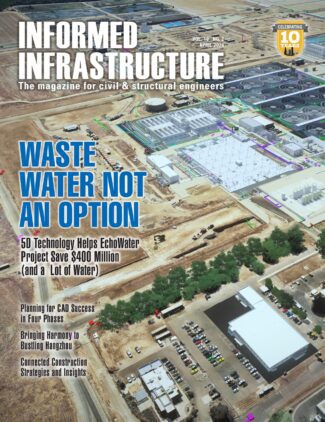RFI will feed into a study to help modernize spatial data infrastructures by integrating new tools, standards, and techniques (such as machine learning) to advance inter-jurisdictional data interoperability
The Open Geospatial Consortium (OGC) and Natural Resources Canada (NRCan), an OGC Strategic Member, are requesting information to support the Modernizing SDI: Enabling Data Interoperability for Regional Assessments and Cumulative Effects Concept Development Study (Modernizing SDI CDS).
Responses to the Request For Information (RFI) are due May 29, 2020.
The Modernizing SDI CDS seeks to provide solutions to the challenge of inter-jurisdictional data interoperability within a rapidly evolving digital environment. Specifically: How can an ocean of environmental, foundational/framework, biological, socio-economic and other data, from multiple sources, and varying levels of standardization, be readily consumable and integratable by scientists and citizens alike?
The Modernizing SDI CDS will, therefore, gather and analyze such information as is necessary to inform and guide a modernized approach to data interoperability and exchange, with a specific focus on environmental and foundational data typically required by cumulative effects analyses. Results of the study will serve to inform future OGC Innovation Program and standards development activities, as well as lay the groundwork for a potential OGC Interoperability Pilot Project, by articulating practical ways to shift towards more intelligent, inferential, machine-driven solutions that allow data to interoperate at need, using emerging Internet-based technologies.
Such technologies could include, but are not limited to:
- OpenAPIs
- Machine-learning/reasoning
- Data fabrics, data lakes
- Cloud environments and services
- Blockchains
A key input into this research is this Request For Information (RFI), a survey/questionnaire asking data providers, data users, and geospatial data solution providers for information about the current state of spatial data infrastructure(s) around the world.
Responses to the RFI, along with extensive additional research by the OGC Innovation Program, will be analyzed and documented in a public report. Results will also be presented in two webinars (English and French) scheduled for September, 2020. Preliminary results may also be presented at the OGC Technical Committee meeting in Montreal in June, 2020.
OGC and NRCan urge a wide range of people to respond to the questions posed in the RFI, including those from:
- National, sub-national, and local governments/municipalities
- Indigenous communities and First Nations
- Academic and research institutions
- Private sector geospatial solution providers and consultants
- Scientists and policy analysts concerned with regional environmental assessments and cumulative effects analyses
The Modernizing SDI: Enabling Data Interoperability for Regional Assessments and Cumulative Effects Concept Development Study is conducted under OGC’s Innovation Program, a collaborative, agile, and hands-on prototyping and engineering environment where sponsors and OGC members come together to address location interoperability challenges while validating international open standards. Watch this short video on how OGC's Innovation Program can benefit your organization.
Responses to the Request for Information (RFI) are requested by May 29, 2020. The RFI document is available on the Modernizing SDI: Enabling Data Interoperability for Regional Assessments and Cumulative Effects Concept Development Study webpage, and includes useful background information as well as the list of questions for respondents to answer.
About OGC
The Open Geospatial Consortium (OGC) is an international consortium of more than 530 businesses, government agencies, research organizations, and universities driven to make geospatial (location) information and services FAIR – Findable, Accessible, Interoperable, and Reusable.
OGC's member-driven consensus process creates royalty free, publicly available geospatial standards. Existing at the cutting edge, OGC actively analyzes and anticipates emerging tech trends, and runs an agile, collaborative Research and Development (R&D) lab that builds and tests innovative prototype solutions to members’ use cases.
OGC members together form a global forum of experts and communities that use location to connect people with technology and improve decision-making at all levels. OGC is committed to creating a sustainable future for us, our children, and future generations.
Visit ogc.org for more info on our work.

